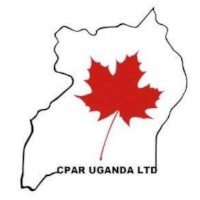“Ann Dunham considered peasants just as important a people as those of high rank,” Professor Alice Dewey, her mentor, is quoted as having observed. With such an ‘Ubuntu perspective’, it is no wonder Dunham:
“In her groundbreaking work in the developing world, a lifelong study of rural blacksmithing traditions in Indonesia, she was able to show that much of the rural poverty in the region was due to a lack of resources, rather than cultural differences with the West, which was the prevailing theory at the time.”
Fascinating (@fasc1nate) on X
In addition to academically bursting such myths located in cultural imperialism, Dunham went a step further to offer practical solutions for the fight against poverty in such marginalized and underserved communities. She:
“In an effort to alleviate the hardship associated with peasant industries, she constructed a model of micro-financing which is now the standard in Indonesia, a country that is a world leader in micro-credit systems. With grants from the Ford Foundation and loans from the World Bank, she worked with many NGO’s to help rural people get loans to launch small enterprises.”
BBC World Service in Dreams from my Mother
 Stanley Ann Dunham, with her son Barak Obama @ ati
Stanley Ann Dunham, with her son Barak Obama @ ati
And:
“She joined Indonesia’s oldest bank to work on what was described as the world’s largest sustainable microfinance program to assist poor farmers and rural entrepreneurs with credit and savings projects. While Dunham didn’t invent microfinancing, she was recognized for her keen ability to bridge the gap between peasant village workers and the financial institutions she persuaded to provide financial support.”
Paula Bender in Legacy of the President’s Mother
Lessons from Dunham’s life work have inspired us, at CPAR Uganda and have provided us with affirmation of the importance and relevance of our “Uganda women’s economic empowerment loan fund” project.
With funds so far raised, two women from disadvantaged backgrounds from Teso, North-Eastern Uganda, are the first pilot beneficiaries:
- Amoding, a single mother of four, bears a significant financial burden of providing for her children’s basic needs, as well as meeting the costs for their school fees, especially. She is utilizing her micro loan, given in May 2024, interest free for one year, to trade in food and cooking fuel – buying and selling matooke (green cooking banana), Irish potatoes and charcoal. Her small one-roomed rented food shop is located within a farmers’ market in an urban poor location in Kampala city. Amoding is a low paid clerk at a school where she works during the day; after which, in the evening, she opens her food shop.
- Itipet is married to a school teacher and they have four children. A school teacher’s salary is insufficient to cover the cost of living for a family of six. On average a school teacher typically earns one million shillings (about US$ 262) or less a month. Surviving on this salary for a family of six would mean living on about US$ 1.45 per day; which is below Uganda’s poverty line of US$ 1.77. As a pilot beneficiary of our loan fund, Itipet is utilizing her micro loan to open up a small shop offering secretarial services – typing and photocopying; selling stationary and fresh fruit juices. In addition to a micro cash loan, CPAR Uganda Ltd granted Itipet machines in-kind – laptop computer, printers, and a photocopier. Her shop shall also function as a contact place for CPAR Uganda in Entebbe.
The loan utilisation journeys of our pilot beneficiaries will be documented and the learning we will use to modify and to enhance our loan fund implementation strategy, in order to ensure maximum benefit to our women borrowers from disadvantaged backgrounds.
Ultimately, our target is to access income generating loans to disadvantaged women in poor urban areas as well as in rural areas. We need your help to make access to income generation loans a reality for these women.
Please, click here to make a donation and also help us to spread the word to others in your networks encouraging them to make a donation.
Thank you to all that have already made donations, which donations have enabled both Amoding and Itipet to launch their income generating initiatives.
Profiled photo: Itipet with the our Managing Director at a shop in which Itipet was the attendant.

